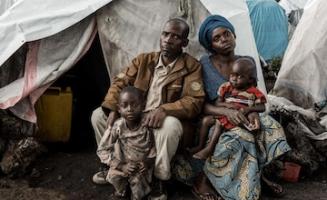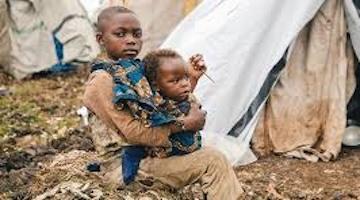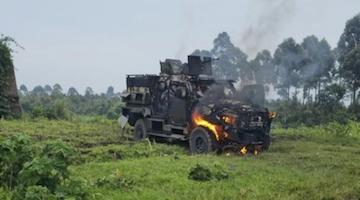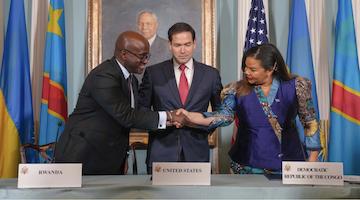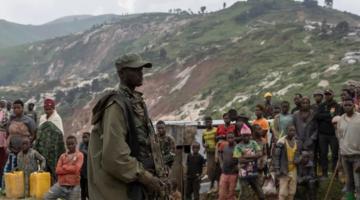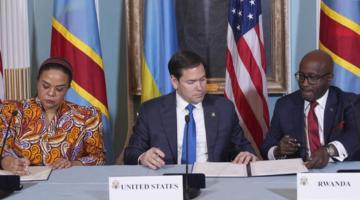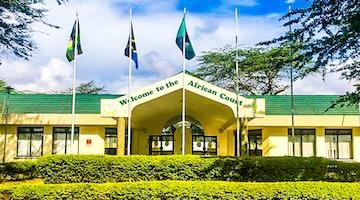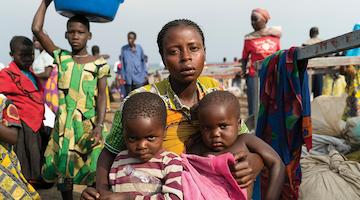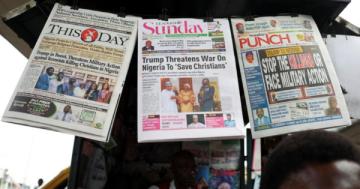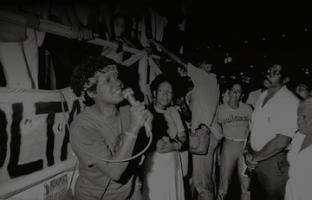The Democratic Republic of Congo’s main prisons are filled at 432 percent on average, making them some of the most overcrowded in the world.
“Munzenze was called the ‘most terrible’ prison in Africa by a UN official.”
Goma, the Democratic Republic of the Congo --- Delcasse Lukumbu lies awake at night on the dirty concrete floor of Goma's Munzenze prison fearing for his life. Surrounded on all sides by hundreds of inmates, the political activist, who was sent to Munzenze a few weeks ago, has no way of keeping a safe distance from others to prevent the spread of coronavirus.
"It will spread like a fire," Lukumbu said on the phone last week. "As soon as one person catches the virus, we will all catch it within hours."
More than 2,400 mostly male prisoners are currently housed inside Munzenze, which was built for a capacity of just 150. The Democratic Republic of the Congo's (DRC) main prisons are filled at 432 percent on average, according to MONUSCO, the United Nations peacekeeping force in the country, making them among the most overcrowded in the world.
Leading health experts say these overcapacity prisons seriously risk outbreaks of COVID-19, the highly infectious respiratory disease caused by the new coronavirus, threatening the lives of detainees, guards and the outside population.
“The Democratic Republic of the Congo's (DRC) main prisons are filled at 432 percent on average.”
Stuart Kinner, a global health professor at Melbourne University who co-authored a paper in The Lancet on the dangers of COVID-19 in prisons, said the situation was a "ticking time-bomb". He added: "There's likely to be an explosive outbreak, meaning a huge amount of people infected in a short amount of time that will rapidly overwhelm the DRC's health system."
There have been 500 confirmed coronavirus cases in the DRC, including four registered in Kinshasa's Ndolo prison this week. According to the coronavirus response committee, 25 of the 180 prisoners in the same cell as the first case have already been tested. But testing is not standard and has not been carried out across the DRC's prisons.
Testimonies heard by Al Jazeera spoke of desperation and squalid living conditions in Munzenze, once called the "most terrible" prison in Africa by a UN official. Tiny amounts of food are provided for one meal a day, many are forced to sleep without shelter due to the lack of space in cells, and last month female prisoners resorted to using shreds of foam mattresses during their period because the prison had run out of sanitary supplies.
“There's likely to be an explosive outbreak.”
"This is hell," said one prisoner in Munzenze, who asked to remain anonymous for fear of reprisal by prison authorities. "There is barely any water for us to use -- and none of it is clean. If coronavirus doesn't kill us, then something else will."
Lewis Mudge, Central Africa director at Human Rights Watch, said the organization had been told some prisoners go days without eating and that 25 died from hunger and a lack of medicine in Kinshasa's Makala prison in early 2020. "What's relevant for us is how the pandemic brings to the fore these larger systemic problems," he said. "These prisons are basically running without money."
Interim guidance published last month by the World Health Organization (WHO) urged authorities to take urgent action to protect inmates, including airport-style temperature testing of those entering the facilities, enhanced hygiene practices and making space available for high-risk, vulnerable prisoners.
The WHO also warned that Africa could become the next epicenter of the outbreak after the continent registered a 43 percent rise in confirmed COVID-19 cases last week. It said the respiratory virus could kill 300,000 people and push 30 million into desperate poverty. For a population of nearly 90 million, the DRC has just 65 ventilators.
“There is barely any water for us to use -- and none of it is clean.”
Attempts to reduce the risk of COVID-19 entering prisons, however, have been flawed, critics say.
On April 2, the justice minister banned deliveries of outside parcels. But Joseph Djongo, a lawyer for Goma-based NGO Food Action for All, said inmates rely on family members and church volunteers bringing them food to survive.
"We try to supply food," he said. "But restrictions are tighter now. If prisoners aren't released, they could die of hunger."
Human rights defenders including the UN High Commissioner for Human Rights, Michelle Bachelet, have reacted to the crisis by calling on national governments to immediately reduce populations in prisons, immigration detention centers and psychiatric hospitals to contain the spread of the pandemic.
Florian Irminger, executive director of Penal Reform International, said the government should release individuals charged for minor and non-violent offences and those with underlying health issues.
"Such releases are basically the only way authorities in DRC can aim at preventing a massive spread of coronavirus," he said.
Several countries across the world have already confirmed a number of coronavirus cases in their prisons, including the Kondengui prison in Yaounde, Cameroon, which recorded 13 positive tests out of the 20 administered. Iran, one of the countries worst affected by COVID-19, has so far temporarily freed about 85,000 people from jail in emergency measures.
“The government should release individuals charged for minor and non-violent offences and those with underlying health issues.”
According to MONUSCO, magistrates in the DRC have to date released some 2,000 prisoners, mostly in the capital, Kinshasa, to reduce the country's prison populations. But campaigners say this is just a fraction of what is required because, like Lukumbu, some 73 percent of detainees in the DRC have not been convicted of any crime or are awaiting trial, according to the database, World Prison Brief.
Patrick Mukendi Tshibamba, director of Munzenze prison, said officials "try to provide the best conditions we can for prisoners".
He added that hand-washing stations had been installed in response to the threat of coronavirus and that there had been attempts to enforce physical distancing. "We know if the virus enters the prison it will be deadly," he explained. "But there are financial and political limits on what we can do."
When contacted for comment, a spokesperson for the Ministry of Justice refused to reveal if any further releases were planned, but stated: "All responsible governments are closely monitoring the situation of all parts of the population. The DRC is no different."
Yet in Munzenze, dozens of newly arrested prisoners arrive at the towering concrete block covered in barbed wire every week without being tested for coronavirus, further adding to the anxiety of the troubled population.
"We live in fear," said Lukumbu. "But what's almost worse is that we don't know if, or when, it will ever end."
This article previously appeared in Al Jazeera.
COMMENTS?
Please join the conversation on Black Agenda Report's Facebook page at http://facebook.com/blackagendareport
Or, you can comment by emailing us at comments@blackagendareport.com

